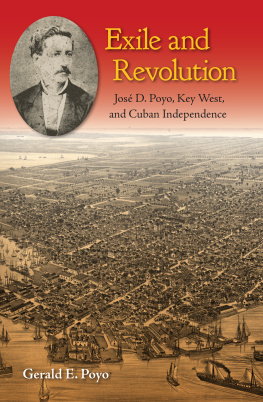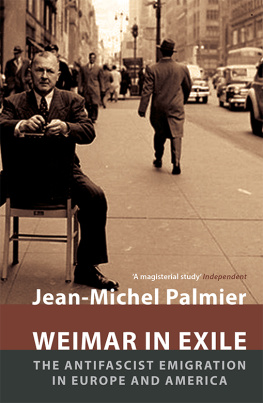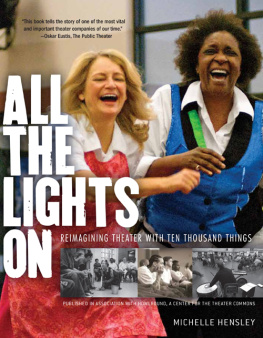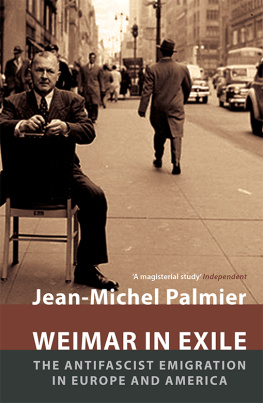Domnica Radulescu - Theater of War and Exile
Here you can read online Domnica Radulescu - Theater of War and Exile full text of the book (entire story) in english for free. Download pdf and epub, get meaning, cover and reviews about this ebook. genre: Politics. Description of the work, (preface) as well as reviews are available. Best literature library LitArk.com created for fans of good reading and offers a wide selection of genres:
Romance novel
Science fiction
Adventure
Detective
Science
History
Home and family
Prose
Art
Politics
Computer
Non-fiction
Religion
Business
Children
Humor
Choose a favorite category and find really read worthwhile books. Enjoy immersion in the world of imagination, feel the emotions of the characters or learn something new for yourself, make an fascinating discovery.
- Book:Theater of War and Exile
- Author:
- Genre:
- Rating:5 / 5
- Favourites:Add to favourites
- Your mark:
- 100
- 1
- 2
- 3
- 4
- 5
Theater of War and Exile: summary, description and annotation
We offer to read an annotation, description, summary or preface (depends on what the author of the book "Theater of War and Exile" wrote himself). If you haven't found the necessary information about the book — write in the comments, we will try to find it.
Theater of War and Exile — read online for free the complete book (whole text) full work
Below is the text of the book, divided by pages. System saving the place of the last page read, allows you to conveniently read the book "Theater of War and Exile" online for free, without having to search again every time where you left off. Put a bookmark, and you can go to the page where you finished reading at any time.
Font size:
Interval:
Bookmark:

Also by DOMNICA RADULESCU
Womens Comedic Art as Social Revolution: Five Performers and the Lessons of Their Subversive Humor (2012, McFarland)

McFarland & Company, Inc., Publishers
Jefferson, North Carolina
LIBRARY OF CONGRESS CATALOGUING DATA ARE AVAILABLE
BRITISH LIBRARY CATALOGUING DATA ARE AVAILABLE
e-ISBN: 978-1-4766-1919-4
2015 Domnica Radulescu. All rights reserved
No part of this book may be reproduced or transmitted in any form or by any means, electronic or mechanical, including photocopying or recording, or by any information storage and retrieval system, without permission in writing from the publisher.
On the cover: Image from the Trap Door Theatres production of the play The Word Progress on My Mothers Lips Doesnt Ring True by Matei Viniec
McFarland & Company, Inc., Publishers
Box 611, Jefferson, North Carolina 28640
www.mcfarlandpub.com
For Henry
For all who survive war and exile and the theater artists who tell their stories
For the memory of my father (19262000)
First and foremost I wish to thank my home institution, Washington and Lee University, for the generous support of my scholarly work through sabbatical leaves, Lenfest research and travel grants, and conference funding, all of which has substantially contributed to the creation and completion of this book. In particular I want to thank my colleague, friend, and dean, Suzanne Keen, for her unrelenting support of my work and for facilitating many of my creative endeavors and projects. I also wish to thank Marc Conner for his prompt support with the funding of several components of this book and related creative projects. And I thank Victoria Blackstone for help with indexing.
I would also like to thank the theater artists included in this book who have generously shared their thoughts, ideas, unpublished works, and illustrations of their work, as well as given interviews for the completion of my study: Matei Viniec, Saviana Stanescu, Motti Lerner, Dijana Miloevi and the DAH Theater, Marcy Arlin, Pavel Zutiak, Noa Baum, Milena Markovic, and Radmila Adamova.
Finally, I wish to thank the unknown member of the Women in Black group in Belgrade, Serbia, who welcomed me into her home and handed me a copy of the precious volume of survival stories gathered under the title Women in Black: Womens Side of War.
If, as Peggy Phelan distills, trauma makes a tear in the symbolic network itself because its scope or intensity overwhelms, trauma can simultaneously create an urgent compulsion to express what is beyond speech or pillars of meaning (Mourning Sex: Performing Public Memories 5). In so doing it can press survivors and witnesses of political trauma to tremendous creativity and activism. In a way, that is the backstory of Domnica Radulescus exceptional book.
Theater of War and Exile offers an exhilarating studyand bold, multilayered argumentfor theaters role in navigating and transforming traumas of exile and war. As an artist, scholar and (global) citizen, I will keep learning from this volume and the artists it highlights for years. So, I trust, will the field. An migr Romanian scholar and artist, Domnica Radulescu interweaves activist, artistic and scholarly investments by focusing on contemporary theater works that have emerged directly and ferociously out of wars and experiences of exile, out of violent political events and their aftermaths in the Balkans and in Israel-and-Palestine. Radulescu avers that postmodernist modes can express traumatic ruptures and transformations in artistically revelatory, profoundly political ways, expressing the ontologies of exile and processes of war trauma. Surely this is because theater is at once social and material, creative and contingent; the liminal symbolic space of theater provides a forum for intervening at the crossroads of individual and collective experience. Indeed, through her diverse, compelling case studies and multidimensional analysis, Radulescu argues that a conspicuous aesthetics can best engage the psychic and physical wounds of political trauma, constellating the living and dead. Hovering nearby is Diana Taylors articulation of hauntology, building on Derrida: (P)erformance makes visible (for an instant, live, now) that which is always already there: the ghosts, the tropes, the scenarios that structure our individual and collective life (The Archive and the Repertoire: Performing Cultural Memory in the Americas 143). Radulescus inspired book reminds us that the ontologies and hauntologies of exile and war structure cultures and lives in ongoing ways, creating rifts and after-lives of trauma, utopic imperatives and urgent art.
Radulescus astute interdisciplinary research is buoyed here by her sustained expertise in Eastern European culture and exile, theatrical praxis, scholarly expertise on subversive humor and feminist theory, and inventive engagement with postmodernism. The volume contributes to multiple fields, from trauma studies to Balkan Studies, from theater as social change to global performance. In so doing, it reflects on war and proliferating exile/s as well as the relationship between art and societyparticularly in times of crisis, coercion and crossing cultures. When, for instance, Radulescu analyzes Romanian-French Matei Viniecs work and his self-perceived conflict between his two different writing modes (and ethics) as playwright and as journalist responding to war atrocities, the book engages readers in the paradoxes of testimony, querying the distinctive stakes of an aesthetic, not only a body, of theater of war and exile. Radulescus vivid distillations of divergent artists work is a joy to read. Whether describing Romanian-born Saviana Stanescus aesthetic vortex of comedy and tragedy for works premiered in exile in America, Czech-born Pavel Zutiaks experimental dance theater adaptation of Polish-born Jerzy Kosinskis novel The Painted Bird, mingling two Eastern European artists war traumas in a dance of spatial dislocation, or the Serbian DAHs multidisciplinary devised performances of remembrance and rebirth which tour internationally to witness and heal memories of atrocities perpetrated in their home/land, Radulescu listens astutely. She conjures artistic and social praxis as interlinked. And she proffers that some of the most vital, experimental theater today is the work of exiles, refugees and survivors of atrocity from Eastern Europe.
Nowhere do the artistic vitality and ethical provocations of an aesthetic of trauma in theater get more fully probed than in Radulescus twelve case studies of writers, directors, choreographers, and performers for the stage. Drawing equally on repertory and archive, she analyzes their inventive, compelling theater of war and exile with critical precision, com/passion and creativity. She excavates focal works potential to critique, resist, and renew social orders through the symbolic, embodied, collective work of theater. To that end, Radulescus generative scholarship includes original interviews with nine of the twelve international artists, querying their perspectives on the relationship of form to meaning and trauma, which helps her to interrogate arts relationship to war and exile today further and to renew our understanding of political trauma
Next pageFont size:
Interval:
Bookmark:
Similar books «Theater of War and Exile»
Look at similar books to Theater of War and Exile. We have selected literature similar in name and meaning in the hope of providing readers with more options to find new, interesting, not yet read works.
Discussion, reviews of the book Theater of War and Exile and just readers' own opinions. Leave your comments, write what you think about the work, its meaning or the main characters. Specify what exactly you liked and what you didn't like, and why you think so.

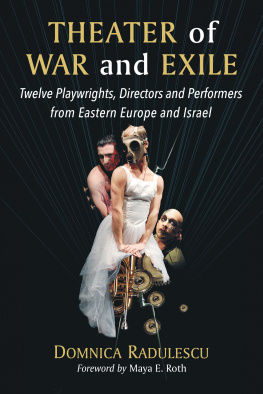

![Viola Spolin - Improvisation for the Theater: A Handbook of Teaching and Directing Techniques [1963 ed.]](/uploads/posts/book/406435/thumbs/viola-spolin-improvisation-for-the-theater-a.jpg)
